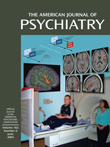Dr. Spinelli Replies
To the Editor: I appreciate Dr. Kaye’s forensic expertise. I am disappointed that he interprets my work as an indictment of individuals rather than an invitation to better understanding.
Dr. Kaye’s letter supports the premise of my article: that we in perinatal psychiatry have the obligation to foster a greater understanding of the psychiatric implications of endocrine changes in child-bearing women (1). These hormone fluctuations exist in the perinatal period and extend to lactation. Dr. Kaye’s letter emphasizes the need for formal diagnostic criteria and guidelines for treatment of postpartum illness.
My information about the case of Andrea Yates was collected from trial transcripts, hours of videotaped interviews, and personal communication with Ms. Yates’s mother, brother, and husband, as well as neighbors and friends. Additional information was available from the highly recommended and well-referenced law review by Professor Debra Denno in the Duke Journal of Gender Law and Policy(2).
In my article, I highlighted the use of postpartum psychosis because of its association with organic psychotic symptoms, confusion, mixed affective states, and cognitive disorganization (3). These factors have important implications in states that use the M’Naghten rule.
In fact, the bulk of the evidence supports the fact that most postpartum psychoses occur in women with cyclic mood disorders favoring bipolar disorder, schizoaffective disorder, and major depression—but rarely schizophrenia.
The expert witness for the defense agreed that Ms. Yates suffered from schizoaffective disorder. However, there were six experts who testified for the defense. Because each treated or assessed Ms. Yates at a different time during different stages of her illness, they gave similar but contradictory analyses (2). The prosecution’s witness diagnosed Ms. Yates with schizophrenia, suggesting that her worsening psychosis occurred after the killings because of the stressors of incarceration and the realization that she killed her children (2). Such disparities are confusing to a jury that looks to experts for information and guidance.
Ms. Yates was a compassionate nurse who worked extraordinarily long hours. She was an honor student, a champion athlete, and an energetic mother—an unlikely picture of schizophrenia (2). Dr. Kaye posits that Ms. Yates was ill for an extended period of time. He concludes, therefore, that she could not have had postpartum psychosis. Paradoxically, her longstanding illness supports a diagnosis of postpartum psychosis. Her psychiatric illness worsened with childbirth, as is expected in a woman with a cycling mood disorder (4).
A childbearing timeline describes Ms. Yates’s psychiatric history. She had five full-term births (February 1994, December 1995, September 1997, February 1999, and November 2001) and one miscarriage (November 1996). Continued breastfeeding between pregnancies intensifies the disruption in the hormonal milieu of a woman who is vulnerable to psychiatric illness. Ms. Yates spiraled further into mental illness with childbirth. Her early births were associated with depression, “visual images,” social isolation, and withdrawal from all recreational activities (2). Her final two deliveries were associated with suicide attempts and four psychiatric hospitalizations for documented “postpartum depression.” During her last pregnancy, she was an energetic, home-schooling mom, often baking and sewing late into the night. After her delivery on Nov. 30, 2001, her mood continued to spiral downward. In April 2002, she was admitted to the hospital for depression, psychosis, and suicidality. She drowned her five children in June.
Dr. Kaye refers to England’s Infanticide Law, which provides leniency and mandated psychiatric treatment “where a woman…causes the death of her child…aged less than one year, but…the balance of her mind was disturbed by reason of her not having fully recovered from the effect of giving birth…or by reason of the effect of lactation.” Although such a law seems unlikely to be adopted in the United States, a more realistic resolution may be the education of the legal community and the criminal justice system about our existing science.
In April 2001 a Tyler, Texas, jury found Deanna Laney not guilty by reason of insanity for killing her two sons (5). The reason she was found insane (did not know right from wrong) was because “God” told her to kill her children. When Andrea Yates drowned her children because “Satan” urged her to do so, the conclusion was that she knew right from wrong because she knew “Satan” to be evil. This application of logic to her illogical delusions (2) suggests that the difference between a mother who kills her children because she is insane and one who kills them because she is a criminal is determined by whether the neurochemical imbalances that cause her insanity speak to her as “God” or as “Satan.”
I emphasize psychiatry’s responsibility to initiate change. When we leave the expert witness with few scientific tools, we fail the mentally ill defendant.
1. Sichel DA: Neurohormonal aspects of postpartum depression and psychosis, in Infanticide: Psychosocial and Legal Perspectives on Mothers Who Kill. Edited by Spinelli MG. Washington DC, American Psychiatric Publishing, 2003, pp 61–80Google Scholar
2. Denno D: Who is Andrea Yates: a short story about insanity. Duke J Gender Law and Policy 2003;10. http://www.law.duke.edu/journals/djglp/articles/gen10p1.htmGoogle Scholar
3. Wisner KL, Peindl K, Hanusa BH: Symptomatology of affective and psychotic illnesses related to childbearing. J Affect Disord 1994; 30:77–87Crossref, Medline, Google Scholar
4. Chaudron L, Pies RW: The relationship between postpartum psychosis and bipolar disorder: a review. J Clin Psychiatry 2003; 6:1284–1292Crossref, Google Scholar
5. Casey R: Devils on the head of a pin. Houston Chronicle, April 7, 2004, p A17Google Scholar



